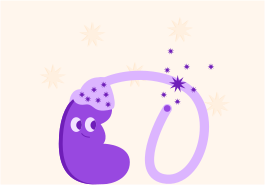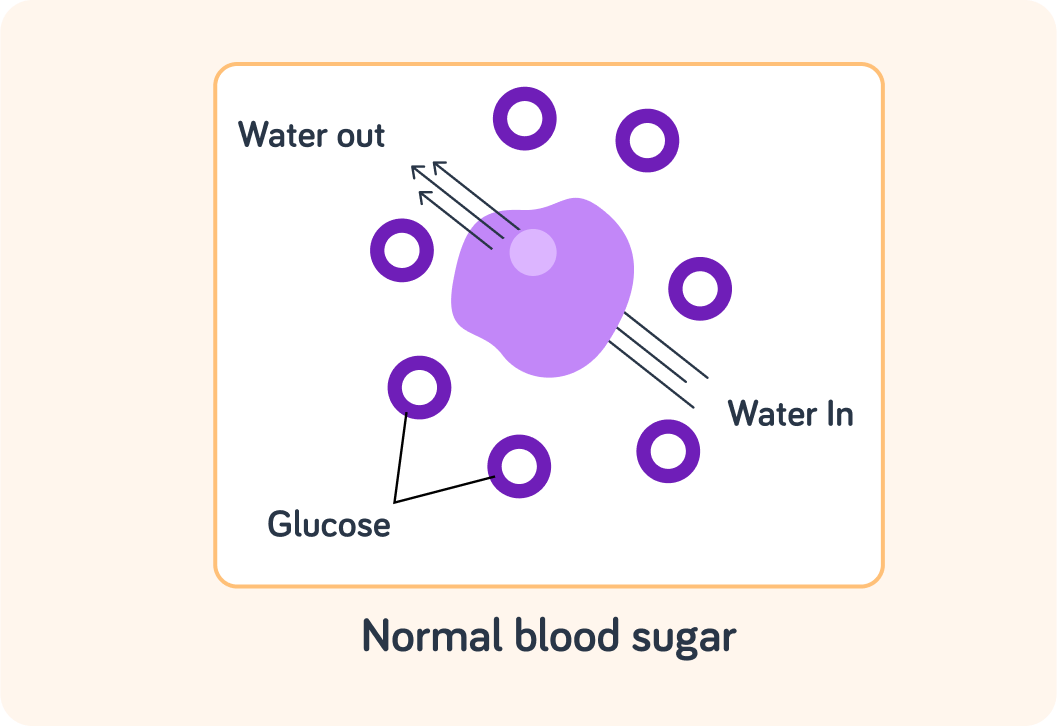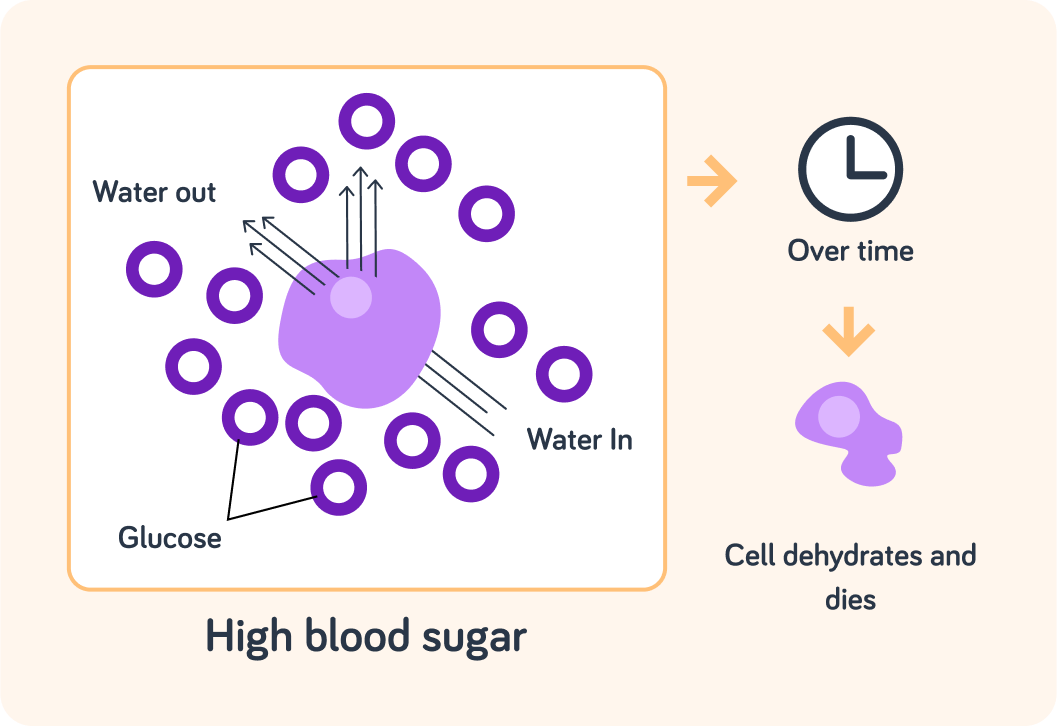YOU ARE LEARNING:
Pancreas and Insulin

Pancreas and Insulin
Blood glucose levels are reduced if too high by the action of insulin hormone which is produced in the pancreas.
Glucose C6H12O6 is a form of ...

Cells use glucose to produce energy from respiration.
What is the correct formula for respiration.

Glucose is transported to the body's cells via the blood. What would happen if sugar levels in the blood were to get low? Pick all the options you think are correct.

You can select multiple answers
When the body is low on sugar, the cells don't have enough energy, so you will start to feel uncomfortable: Tired, dizzy, unable to concentrate, sick. These feelings are sometimes called hunger knock.
If sugar is so important to our bodies you might think that having lots of it in the blood would be good. However, if blood sugar levels are too high, that can also make you ill. What do we call that condition?

When the blood sugar levels are normal, the amount of water entering the cell is the same as the amount leaving, so the cell remains unchanged.
Water enters and leaves cells all the time due to a process called osmosis.

When the blood sugar levels are too high, more water leaves the cell than enters the cell. What will happen to the cell if this continues?
A) The cell will shrink and die. B) The cell will expand and burst. C) The cell will get smaller, but is otherwise unaffected. D) The cell will take in the extra glucose.


This image sums up what happens.
The glucose in the blood is causing water to leave the cell via osmosis in an attempt to even out concentrations of water and glucose in the blood.

Cells can take in some of the glucose from the blood. This reduces the difference between the sugar levels in the blood and the cells themselves. How would this affect dehydration of the cells?

The levels of sugar in the blood are monitored by the pancreas. If the blood sugar levels are higher than normal, it secretes the hormone insulin to balance it. When might a person's blood sugar levels rise during the day? Pick all the options you think are correct.

You can select multiple answers
What happens when blood sugar levels are high?
The pancreas detects a rise in blood sugar levels.
It secretes insulin into the blood.
Insulin allows glucose from the blood to enter normal body cells. What does this do to the blood sugar levels?

Insulin allows muscle and liver cells to take in sugars from the blood. **** These cells then convert this glucose to glycogen. How does that help the body?

You can select multiple answers
Can insulin help the body if the blood sugar levels are too low?

Insulin is a hormone produced by the pancreas that helps us lower sugar levels in the blood when sugar levels are too high. We need another hormone to help us if sugar levels are too low. This is glucagon.
Diabetes is a condition in which the body is unable to fully control its blood sugar levels. When a diabetic becomes hyperglycemic, **** the pancreas is unable to help. What does hyperglycemic mean then?

Diabetes
There are two forms of diabetes: Type I and type II
Both result in a person being unable to fully control their blood sugar levels. Both need medical support.
Type I diabetes, is caused by the cells in the pancreas being unable to produce insulin, when the blood sugar levels are too high. What do you think doctors do to help these patients?

Type II diabetes results from the body's cells failing to take in glucose when insulin is present in the blood. The pancreas is functioning normally. Would an injection of insulin help this condition?

Type II diabetes is linked to obesity.
It cannot be treated with insulin, but it can be managed with a good diet. Many people find that losing weight can reverse the effects, and they no longer suffer from the condition.
